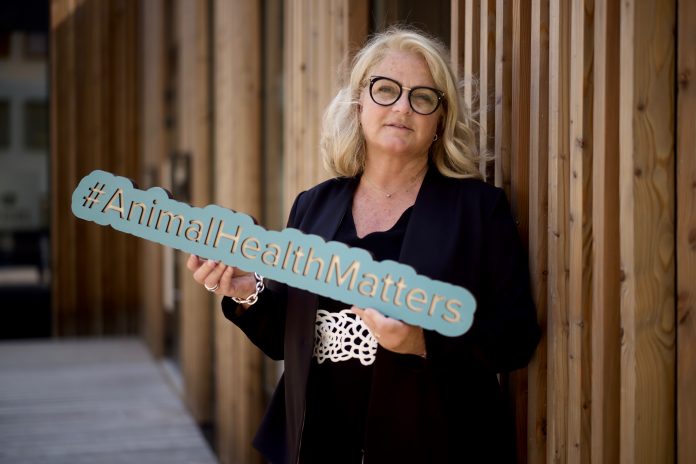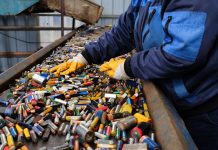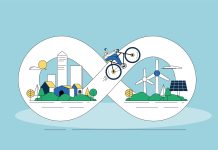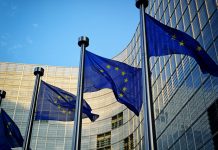Well-managed and healthy livestock play a key role in the European Green Deal, Roxane Feller, Secretary General of AnimalhealthEurope argues
The European Green Deal sets out how to make Europe the first climate-neutral continent by 2050, and the Farm to Fork Strategy is billed as being at the heart of this deal. It aims to comprehensively address the challenges of sustainable food systems and recognise the inextricable links between healthy people, healthy societies and a healthy planet.
The animal health industry has long been a supporter of more One Health thinking — i.e. realising that what impacts animal health will also impact both human and environmental health — and encourages policies that take this concept into account. So a transition towards a fair, healthy and environmentally friendly food system, based on innovative and enabling technologies is an ambition that the sector can support on the whole.
Digital applications
If the transition is to be just, it is clear that all means that support sustainable practices should be both included and incentivised in the strategy and its subsequent measures. And the progress made so far in Europe deserves recognition. Use of digital applications such as monitoring devices, data-driven decision-making, and diagnostics are coming to the fore in animal healthcare and husbandry. Coupled with improved prevention and biosecurity means, such advances are contributory elements that can further accelerate this transition.
Adoption of practices focusing on the health of the animal as well as public and environmental health have meant that over the past decade a majority of EU countries have reduced their use of antibiotics in animals by an average of 32% over the past 10 years.
And according to FAO, methane emissions from livestock in Europe have dropped by around 50% since the 1990s.
Food supply Europe cannot take its health, food supply, nor financial stability for granted. Recent events have brought this to mind once again. So a just transition must support a robust and resilient food system that continues to function in all circumstances. From a healthy animals perspective, just as animal disease can occur in any farming practice, so animal health matters in all the different farming systems in Europe. Support through the Common Agricultural Policy and national policies should be accorded for any form of innovation or action that helps prevent and fight animal diseases, thus ensuring better animal health and welfare.
Antibiotic resistance (AMR) From a healthy societies and healthy people perspective, as expected, and quite rightly, antibiotic resistance (AMR) gets a key mention in the strategy. The Commission infers that development of resistance is linked to the excessive and inappropriate use of antimicrobials in both animal and human healthcare. And this is where recognition of Europe’s efforts in reducing the need to use antibiotics should be noted alongside Europe’s food safety successes. Food safety plays a key role in a healthy diet, and it is a top priority for Europe. That’s why there are multi-layers of controls right from the licensing of an animal medicine up to the animal-sourced food product entering the food chain. This helps protect people against harmful residues, and strict controls also ensure that sick animals do not enter the food chain, reducing the risk of foodborne illnesses or the transfer of antibiotic-resistant bacteria. When food is handled, stored and cooked thoroughly, this adds an extra layer of protection.
It is important that Europe’s livestock farmers continue this successful trajectory in reducing the need to use antibiotics and this is where animal health advances can play a key role. It must be noted, however, that reduction in the use of antibiotics in animals alone, will not sufficiently address the challenge of antibiotic resistance, nor will it make a great impact on reducing the estimated 33,000 human deaths in the EU each year. As scientific bodies and authorities have stated, about 75% of the total burden of infections with antibiotic-resistant bacteria in the EU and EEA countries are associated with human healthcare, so an equally supportive effort must also be made here.
From a healthy planet perspective, opinions on how animals are farmed in Europe and the impact on the environment are very diverse. Many organisations hark back to an idyllic era of small family farms out in the countryside, feeding the immediate community. The vast majority of farms in the EU (95.2%) are still classified as family farms and they create both wealth and employment in rural areas, while delivering high-quality foods to a global population. Continued research and innovation will be key drivers in accelerating the transition to a sustainable, healthy and inclusive food system.
Circular bioeconomy
Today’s advances in farming technologies mean that all kinds of livestock systems can be respectful both of animal health and welfare and of the environment. Well-managed and healthy livestock can play a key role in a circular bioeconomy that supports biodiversity and mitigates climate change impacts. Strategies for nature and innovation do not need to be mutually exclusive. In fact, under Horizon Europe, €10 billion is devoted to research and innovation in the agricultural, aquaculture and food production sectors to find digital technologies and nature-based solutions for the agri-food sector. True One Health policies, taking on board the human, animal and environmental factors, will complement the Farm to Fork strategy which still needs to guarantee food safety and supply for all, a viable income for farmers, and a climate-neutral Europe.











